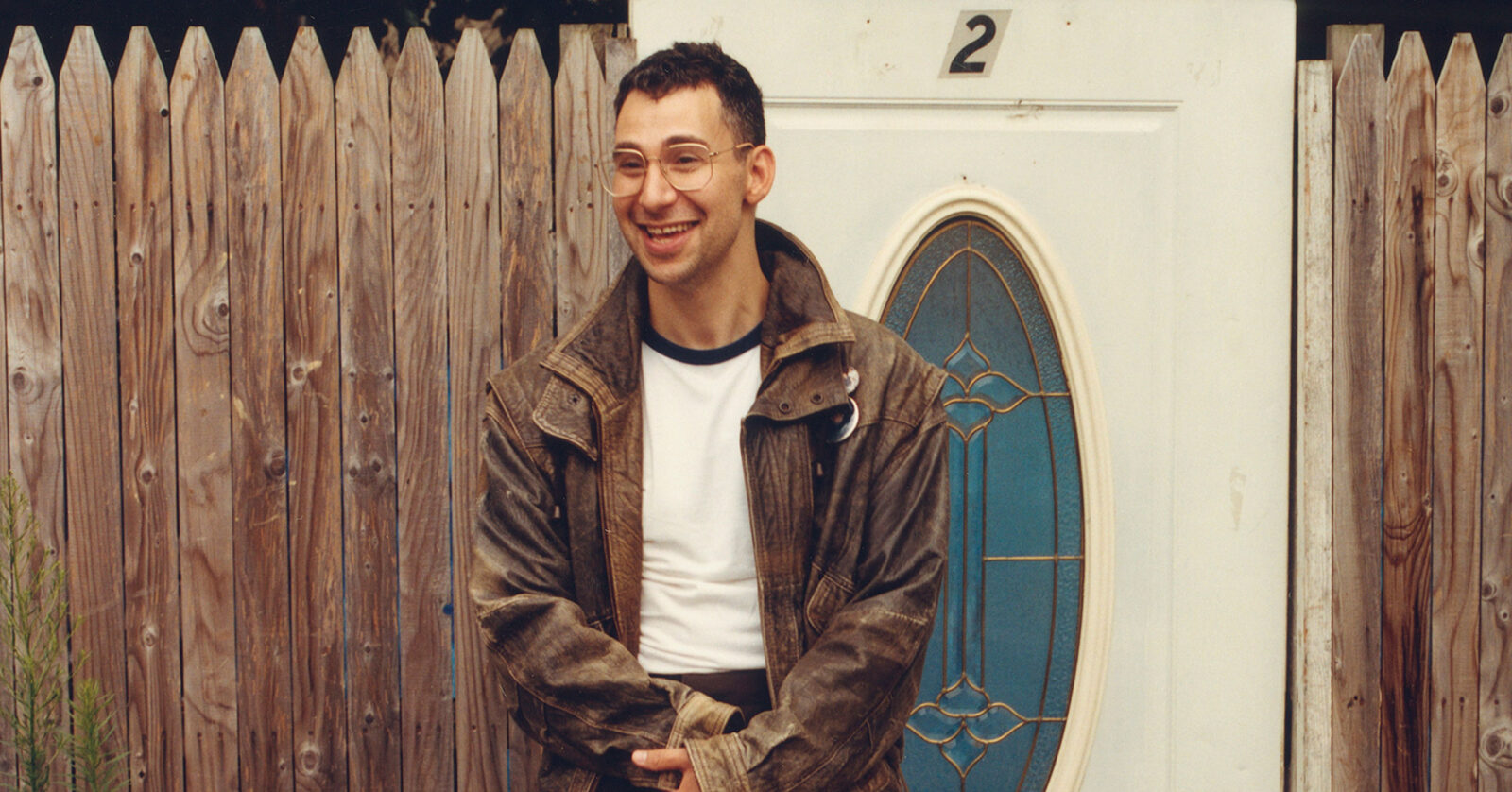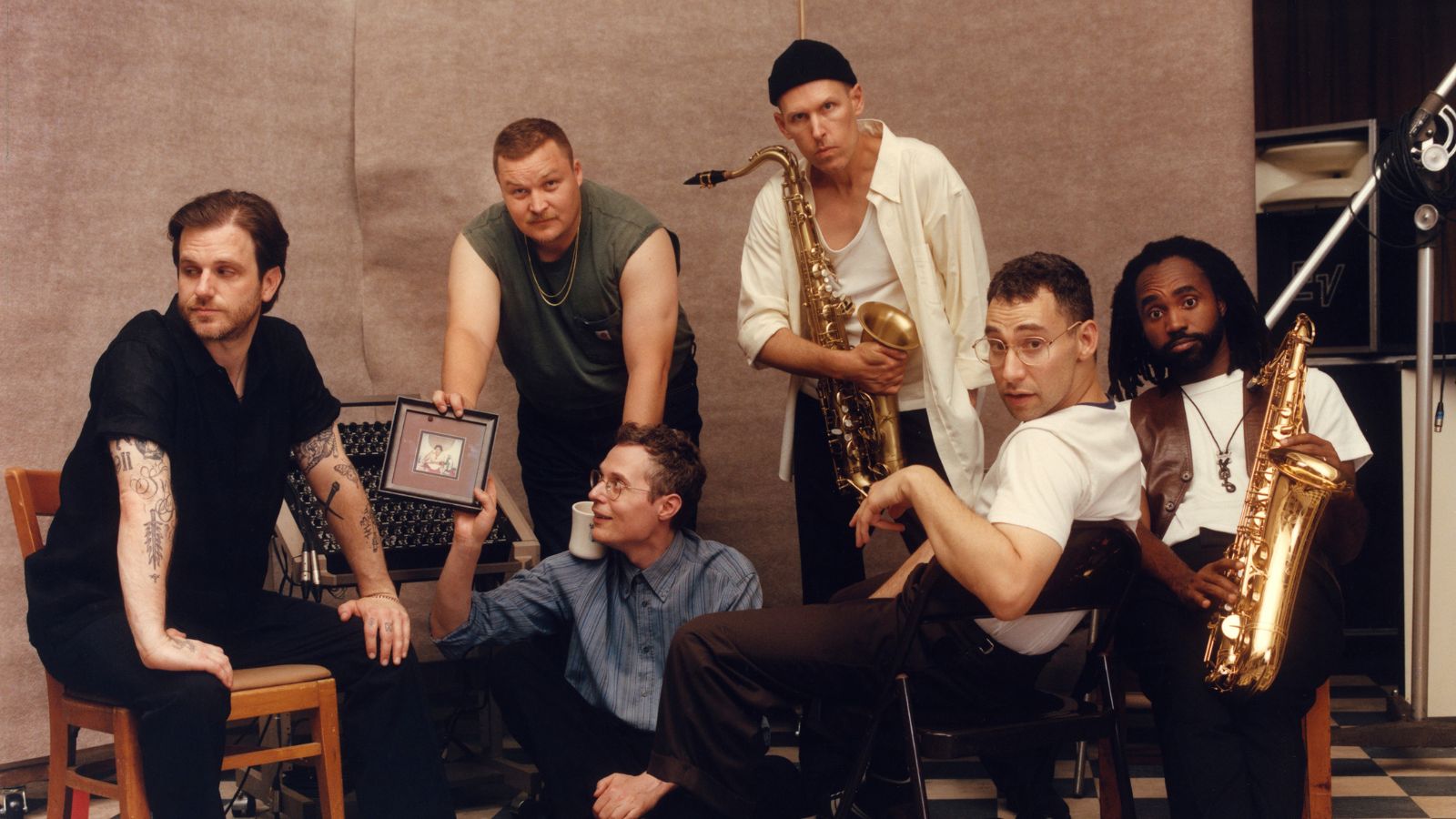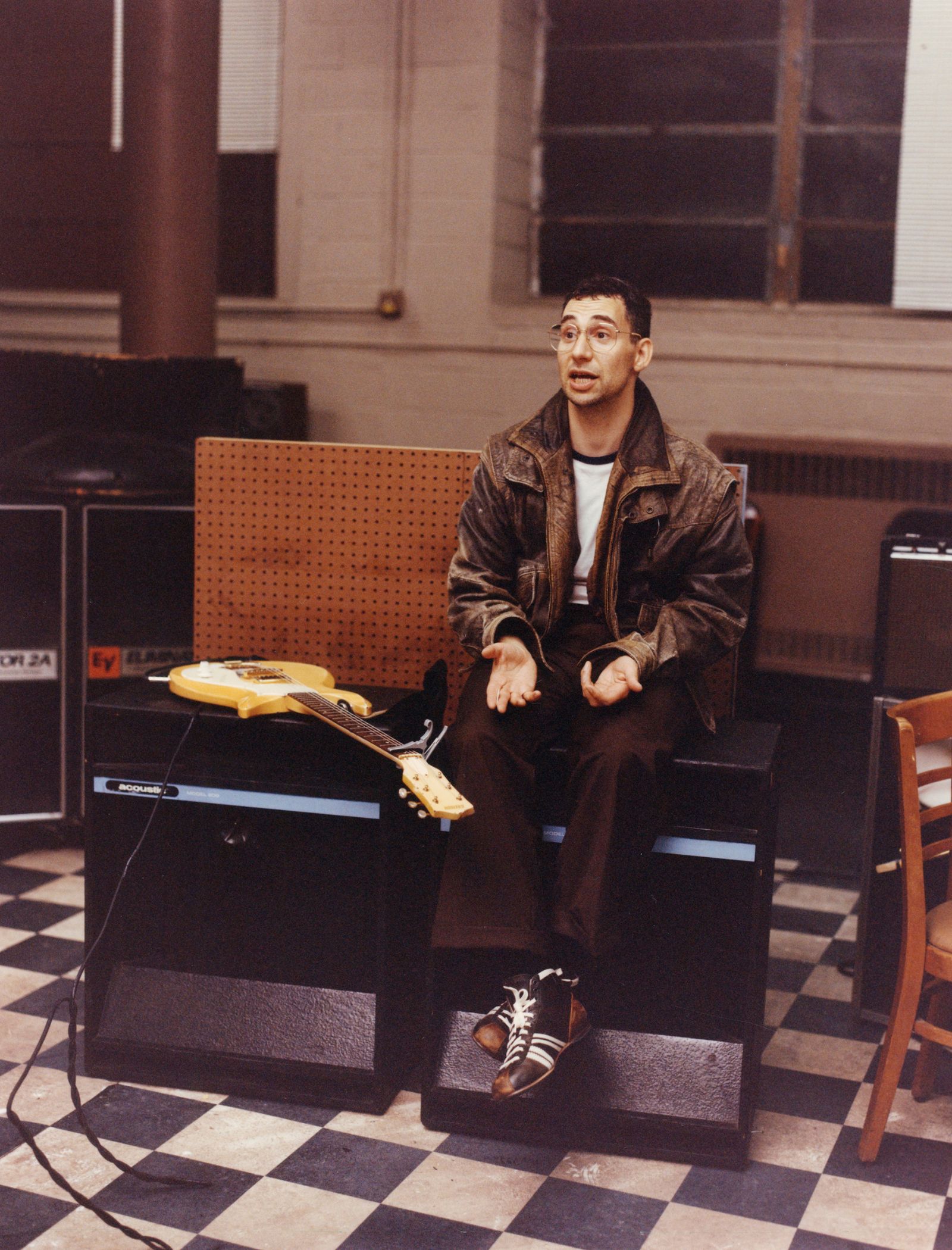Jack Antonoff On Embracing The Present: “It’s Definitely A New Time For Bleachers”
Beyond his reputation as one of pop’s most prolific producers, the Bleachers frontman opens up about his unique creative process and the origins of his new album.

Jack Antonoff photographed by Alex Lockett.
Jack Antonoff photographed by Alex Lockett.
To any music geek, the name Jack Antonoff is already a music staple.
Of course, a majority of them would tell you that they were already familiar with Antonoff’s prior contributions to the music realm, particularly from his involvement with Fun and his solo project turned band, Bleachers. Though over time, the mass public began to catch wind of his significant collaborations with industry heavyweights such as Taylor Swift, Lana Del Rey, Lorde, The 1975, St. Vincent, and a full list of A-List acts that are just way too many to mention.
In several ways, Antonoff and his name have established themselves as a huge part of modern pop culture –– even becoming a cultural lexicon of sorts in the ever-evolving industry as we know it. Yet beyond the popularity of the viral video of Antonoff and Swift writing the bridge of “Getaway Car” alone, along with his recognition/unofficial title as “pop music’s secret ingredient” –– there is still a whole lot more to unpack behind the musical genius of the Bleachers frontman.

Jack Antonoff photographed by Alex Lockett
As I meet with Antonoff, he’s coming off a performance high following his appearance on The Late Show With Stephen Colbert, wherein the band just debuted the track “Jesus Is Dead” live for the first time ever. With an almost giddy-like nature, he tells me all about his love for performing live, going as far as to reflect on his earlier days with his first few bands, Steel Train and Outline.
“The experience of falling in love with touring back then before people were really coming to the shows, and having to feel all that glory of living your life on tour –– it’s still something that compels me [to this day]”, he mentions.
Obviously, the state of Antonoff’s life on tour these days is vastly different from before. Nearly every Bleachers show across Northern America and Europe in support of their recently released album is sold out, with a total that’s close to a million people tuning in to witness the enthralling nature of their live performances. And who can fault them? Considering the infectious nature of their music is equally as inviting, which isn’t the easiest thing to translate to such a universal audience especially in the same effective manner as they do it.
But that isn’t to say that there aren’t any challenges or adjustments that have to be made for it.
With the fourth album of the band, the New Jersey native elaborates on how the process of recording in the studio differs greatly from adapting his songs for a live performance.
“We’re just starting to figure it out and the truth of it, I never think about that when I’m making an album. Sometimes it can be a real b*tch once we’re in there because I recorded all these things that are so intricate and specific –– only to spend the past week as a band just figuring out how to play these songs,” he mentions. “Because with some songs, we want to play them as they sound on the album, while some songs feel like they need a different expression live.”
Still, the routine is something that Antonoff and the rest of the band find quite exciting, almost as if it’s a surge of adrenaline that rushes through their bodies. “It feels f***king great honestly, but we’re still on that nervous beginning where no matter how long you’re doing it, when you have a batch of new songs [that] you’re trying to integrate into this living body of work –– it’s really crazy. It’s like a family all of a sudden that has a new member in it, but it still pumps you up to the point that you want to exploit that feeling as much as possible.”

Bleachers photographed by Alex Lockett
With Bleachers, the highly-anticipated record doesn’t just mark a new set of anthems from Antonoff and the group, but it’s almost like a metaphorical symbol that turns the page to a whole new chapter of his life. From his departure from his previous label RCA Records, developing a record imprint with Dirty Hit, and getting married to actress Margaret Qualley –– the album is the culmination of all these changes that have more or less allowed him to bask in the present.
“In my past three albums, I felt very obsessed with the past and the future. I was deeply imagining things from before and things that could happen. But somewhere along the way, I just started only thinking about right now, I don’t know why. So this album feels like you’re sitting in a room with me right now”, he tells me. “It’s definitely a new time for Bleachers because it feels like, things are really present, and that things are exciting and opening up for us.”
Throughout the record’s fourteen tracks, it’s evident that Antonoff has taken time to sit back and become introspective. Whether it’s the cultural commentary infused in tracks like “Self Respect” and “Alma Mater” or the personal anecdotes from “Tiny Moves” and “Isimo”, Antonoff’s reflections exude a lot of feelings –– which he attributes as his key factor when it comes to the process of making music.
“When I make albums, I just have a feeling. It’s a very complicated thing that I’m making very simple –– but I have a feeling, and then I chase that feeling. So when that’s all done, that’s when I begin to understand why I felt compelled to share it [with my audience]”, he affirms.

Jack Antonoff photographed by Alex Lockett
“It’s a pretty crazy process to chase a deep feeling inside of you, and to create it all exactly as you hear it in your head, and then you give it to the whole world. Because all of a sudden, you’re left in this moment like What does this mean? Why do I feel the need to shout this from the rooftops? It’s a really interesting process, and I never really get demystified by it.”
Yet with such a candid expression of Antonoff’s feelings, the songs of Bleachers have resonated with millions of listeners across the globe due to the anthemic nature of their music. Upon asking Antonoff how he feels about that, there’s a sense of endearment that comes with his acknowledgment. “When people make you feel seen, they make you feel powerful too –– like you can do anything, you can go anywhere with whatever you want. And my audience has done that for me –– they make me feel like I can say all the things that are hard to say”, he mentions.
“I’ve always found myself reaching more people just by being very honest. So weirdly, I don’t think about reaching a lot of people, I just think about what I’m feeling –– and then I only try to express it as clearly as possible. And if that reaches a lot of people, that’s cool! But if it doesn’t, that’s cool too, because [at least] I did what I felt.”

Jack Antonoff photographed by Alex Lockett
Amidst this intensive, creative period for the musician-writer-producer, he describes this latest record as an outlet to play around elements he hasn’t done yet, while still keeping the signature traits of his sound throughout. “I can tell when something [I’m doing] feels new to me, and I can tell when something feels like I’ve left my universe”, he mentions.
As an artist who continuously evolves, Antonoff emphasizes just how important it is to find the right balance between artistic expression and an authenticity that feels natural to him. “[Throughout my career] I’ve been looking for that perfect space right in between wherein I can feel shocked with what I do, but I can also feel the road that’s behind me. It’s all feeling, and I can tell when I have it”, he adds.
Yet ultimately, his creative ennui finds basis from a grounded set of influences — whether it’s the people he surrounds himself with or the fears that keep him worried at night. “There’s always a fear in me that makes me want to make an album. I find myself scared of what was going to happen in my life, of who I would be, and where I would go.”

Jack Antonoff photographed by Alex Lockett
“On this album, I felt really, really terrified to enter a new phase of my life and also scared that it would mean that I wouldn’t be able to take the people who I’ve lost with me. Which isn’t true [of course], because you can take them with you and still grow. But really, this record is all about overcoming that fear.”
With ten Grammy wins adorning his illustrious career, it should become evident that Jack Antonoff’s impact extends far beyond catchy pop hooks, or his contributions to the works of other artists of the same caliber. Antonoff and his music stand as a testament to his unparalleled prowess –– with worthy recognition as one of the most prolific musical visionaries of the twenty-first century. As his sonic landscapes continue to redefine the boundaries of contemporary pop culture, this latest record is the latest pinnacle of his career –– one that allows both him and his listeners to sit back, and reevaluate the present.
As the New Jersey native reflects on his craft, his words resonate with a profound truth: “I hope it does what it did for me and for some other people. Because every record feels like it saves my life. Every album that I make feels like I couldn’t have existed without it. So I see the albums as little messages in a bottle for whoever needs it, and I think whoever needs it –– I hope they find it.”
Listen to Bleachers’ self-titled album below: